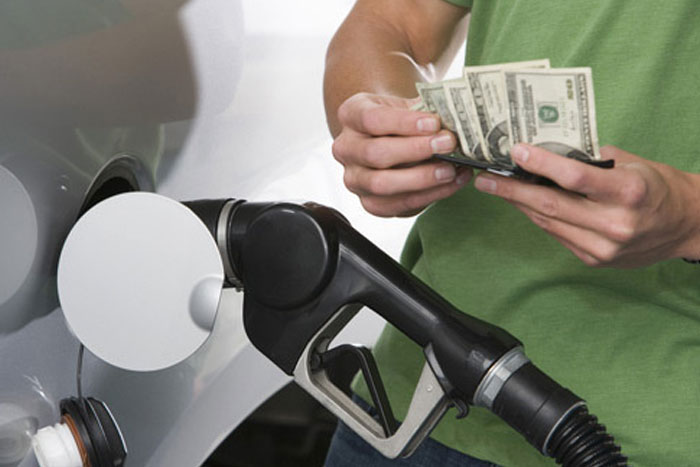
Using Your Car’s Engine Intuitively to Get Better Gas Mileage.
There are lots of Hypermiling techniques being preached all over the internet and a lot of people employing them. Some of these are good common sense driving tips and some of these are just plain dangerous.
Some of these dangerous tips include tailgating (like a NASCAR car drafting the car in front of them) or over-inflating their tires (which they say is ok because the risk of injury from a blow-out is reduced because they will only drive under 50mph. Really?). The art of Hypermiling is very useful for saving fuel energy if it is done correctly.
Accelerating and Braking
Driving sensibly is always a good thing to do, but as it turns out, it also saves gas. According to the EPA (Environmental Protection Agency) and their Fuel Economy Guide, gas mileage can be drastically improved by simply driving smoothly – not accelerating and braking harshly.
When a driver accelerates he should do it slowly and evenly and do the same with braking when possible. Keeping a close eye on what is ahead, and trying to anticipate what other drivers are going to do will help to prevent sudden stops and starts. If this is the only Hypermiling technique used, it will save the driver substantially. The EPA estimates that non-aggressive drivers can save up to 33% at highway speeds.
How to:
To learn slower acceleration, the driver should pay attention to how long it takes to normally accelerate from 0-60 mph. If it normally takes 10 seconds, slow that process to 15 seconds. This alone will save a lot of gas.
Use Cruise Control
Using the car’s cruise control is a helpful way to save energy. The cruise control aids the car in efficiently accelerating and slowing instead of possibly over-acceleration by a person. It also assists the driver by encouraging that he look further down the road and pay more attention to what is going on around him, in anticipation of what other drivers are going to be doing. This in refers us back to the previous point.
How to:
The driver should calculate the gas mileage during normal driving for 1 week. After this week is up, he should drive using the cruise control as much as possible for 1 week and compare the difference. NOTE: In mountainous or very hilly areas, cruise control can actually reduce the mileage because of it’s tendency to try and keep the car at a specific speed, accelerating and decelerating when it might not be necessary.
Windows Open vs. Air Conditioning On
This one seems to be in constant debate in the Hypermiling circles. Some say that the air conditioner puts a drag on the motor which in turn, decreases gas mileage. This is true. Some say that opening windows decreases aerodynamics and puts a drag on the car, decreasing gas mileage. This is also true. So Edmunds.com tested the theory out using cars going 65 mph with the windows down and one with the windows up and A/C on. They determined that there is no real benefit to gas mileage either way. For this they recommend doing what is comfortable. Edmunds.com: “We Test the Tips”
Other Tips from the Environmental Protection Agency
The EPA also recommends slowing down (as do many other organizations). They state that every 5 mph over 60 mph can reduce your fuel economy by 7-8%.
Avoid idling. While this is a good tip since when the car is idling and not driving anywhere it is getting zero miles to the gallon, sometimes this can’t be helped. Some people will turn their engines off in traffic to save the gas when they are sitting still. This practice doesn’t seem to make much of a difference since the surge of restarting the engine every few minutes negates much of the gas that is saved when it is turned off. Unless the car is going to be off for a while (at least a few minutes) then, leaving it running is the best bet.
Keeping a car properly maintained helps to increase fuel economy. If a car is running rough or has clogged filters fuel economy can plummet. The more efficiently an engine runs and suspension drives, the better the fuel economy.